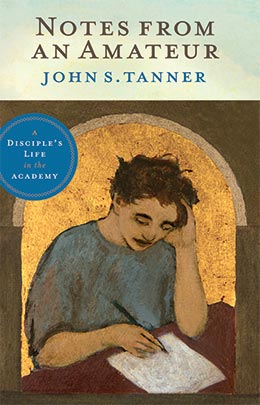Sportsmanship and Democracy
John S. Tanner, Notes from an Ameteur: A Disciple’s Life in the Academy (Provo, UT: Religious Studies Center; Salt Lake City: Deseret Book, 2011), 56–8.
BYU 24, Utah 48. No one likes to lose—especially to a rival. The ashes of defeat leave a bitter taste. But I could not have been prouder of the players I heard interviewed after the game. They complimented their opponents, accepted responsibility for their own performance, and generally acted with civility and respect. They exhibited good sportsmanship in defeat. No matter what went wrong in the game, I thought, something is going right in the program.
Learning to lose well is one of the most important lessons taught by sports, which has long been justified in school as a laboratory for character education. The Duke of Wellington is famously reported to have said that “the Battle of Waterloo was won on the playing fields of Eton.” The battle for civil society is also being won and lost in part on our playing fields. American democracy succeeds, in no small part, owing to lessons learned on baseball, soccer, and football fields across the land. At their best, sports can inculcate crucial democratic values—including deference to the rule of law; the ideal of fair play; practical experience with rivalries constrained by time, place, and impartial arbitrators; and the peaceful acceptance of defeat.
Democracies have a huge stake in inculcating such values. Particularly important to civil society is how to be a good loser—as we see in countries like Zimbabwe or even in our own after the passage of Proposition 8. At no time is the civic importance of good sportsmanship more on display than during a postelection transfer of power such as we are now living through. We expect politicians and political parties, like athletes and athletic teams, to play by the rules. We expect losing candidates to abide by the outcome, however distasteful, rather than resort to violence. We even expect losers to congratulate the winners. And we expect rivals to resume the contest only within carefully contained and structured arenas of engagement. These democratic values all find corollaries in principles of good sportsmanship.
Such civic virtues are not innate. They are learned “habits of the heart,” in Alexis de Tocqueville’s phrase, constitutive of democracy in America. As such, they should be reinforced on every playing field in America. For learning to be a good sport doubles as a civics lesson in learning to play by the rules and learning how to accept defeat.
Historically, it was understood that amateur athletics were supposed to teach such values. Indeed, coaches were hired and admired for their ability to build character and not just for winning records. (Alas, how times have changed!) Chief among the moral lessons to be taught was good sportsmanship, including how to be a gracious winner and a good loser. Though I hate to lose, I am grateful that our players seem to be learning this painful but critical life lesson.
For learning how to lose gracefully is not only a civic duty; it is a religious imperative. God designed mortality to ensure “opposition in all things” (2 Nephi 2:11). Setbacks and defeats are part of his plan for our perfection. Sometimes we are better off for losing. As Solzhenitsyn observed, “Governments need victories and the people need defeats.” Similarly, football programs need victories; these fill the stadiums. But players and fans need defeats, at least occasionally; these fill the soul. Defeat plays an integral role in our "quest for perfection."
Which, of course, is the motto adopted by the football team this year. It was borrowed from BYU’s mission statement. Applied to an athletic team, the motto has grated on many. It seems to smack of hubris, like a batter pointing to the fence. People assumed the motto was all about winning. They assumed the emphasis fell on perfection, meaning a perfect season for the team. I am told that this is not what the coaches and players had in mind when they chose this phrase from the mission statement. For them, it spoke to their aspirations to get better. It seemed the accent for them fell on the quest.
I don’t know, however, if the coaches and team fully appreciated the painful truth that a quest for perfection might require suffering through an imperfect season. From loss can come growth. This hard, tragic truth belongs to the wisdom of the ages. It was well known by the ancient Greeks, who gave the Western world not only competitive sports and democracy but also tragedy. They understood that “we must suffer, suffer into truth.” They knew that some wisdom can be won only by losing.
Even so, we long to win. Hope for the perfect season springs eternal. For players, coaches, and fans, there is always next year. Always the quest for perfection. Like sportsmanship, the drive to win is part of the American dream, part of what makes democracy work. So, go Cougars!
